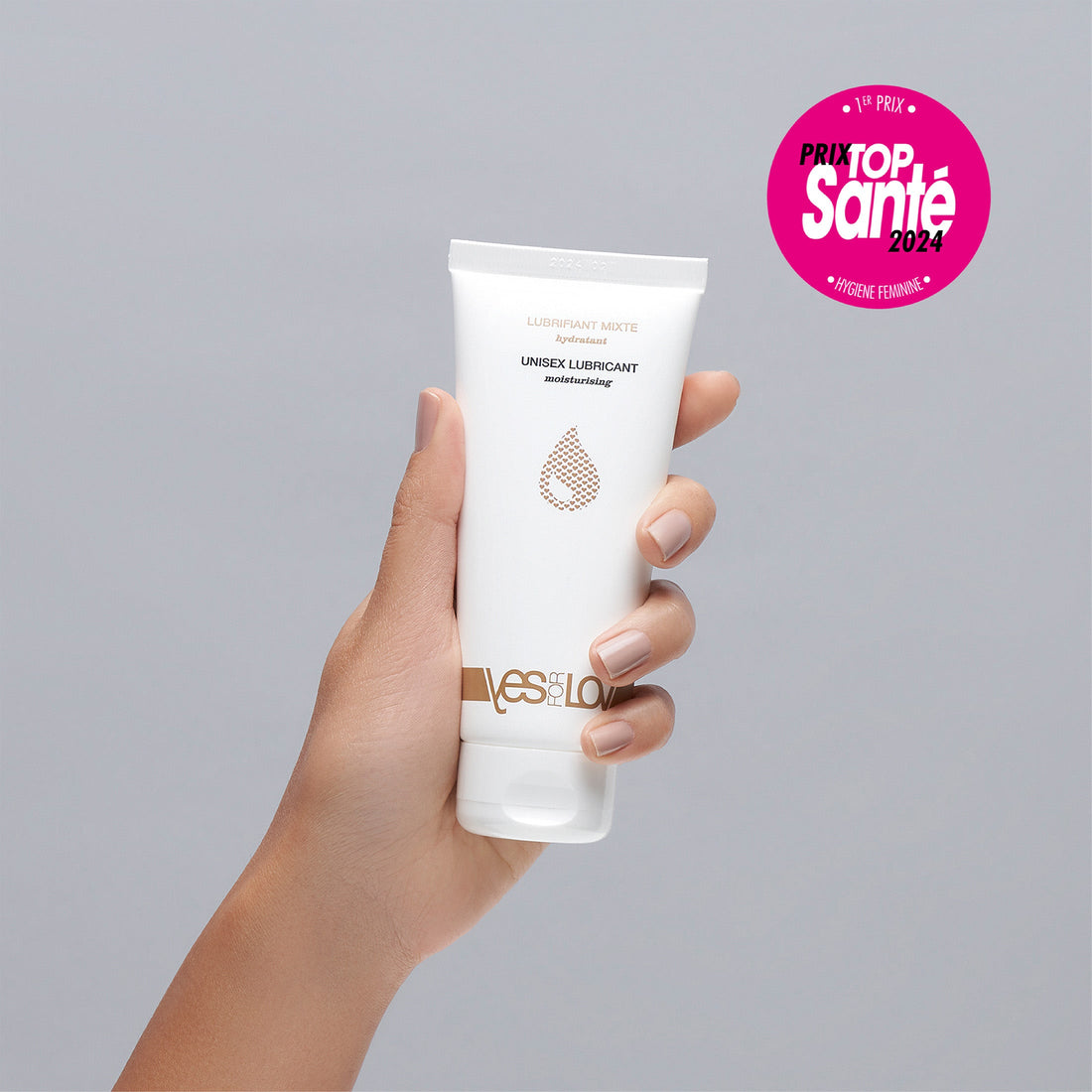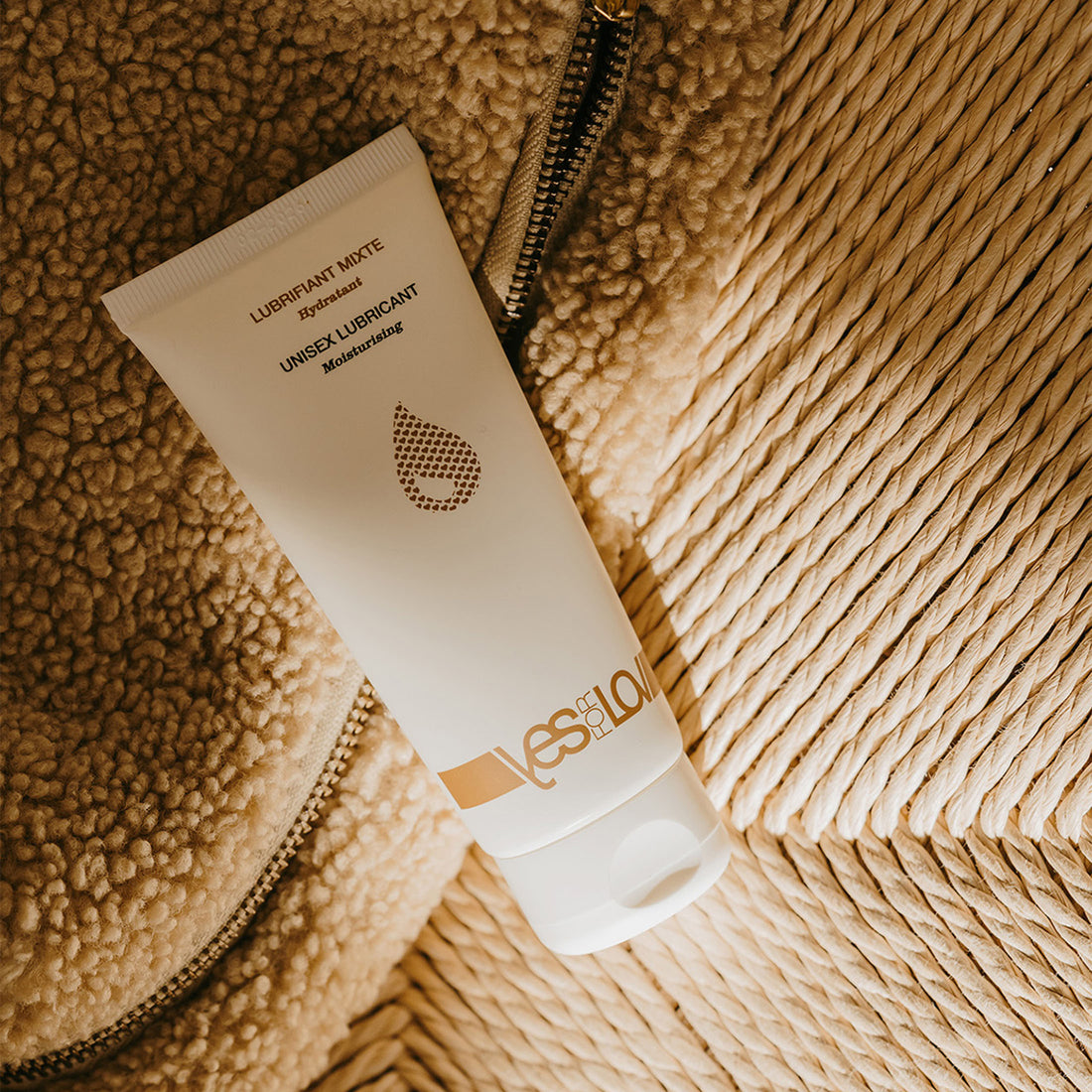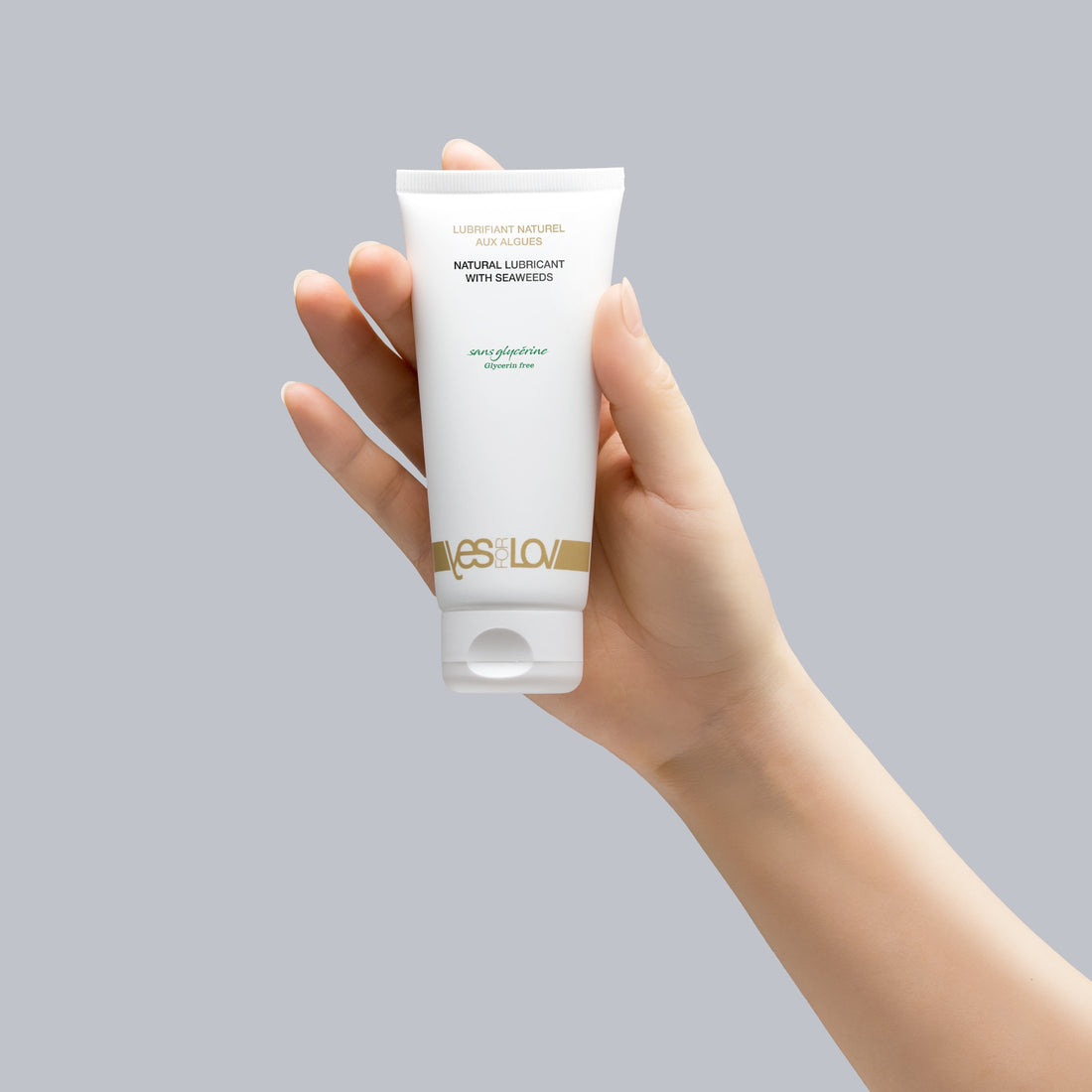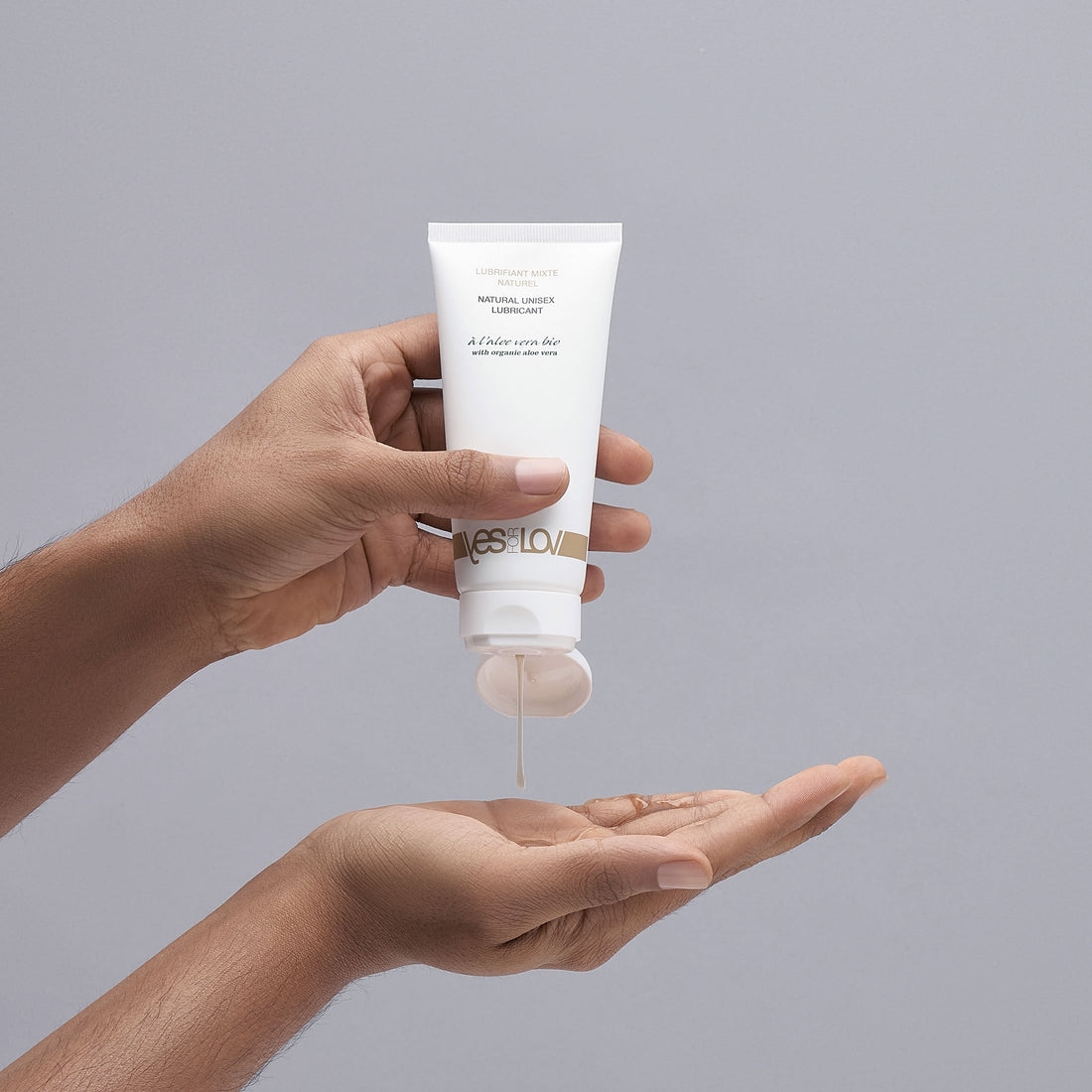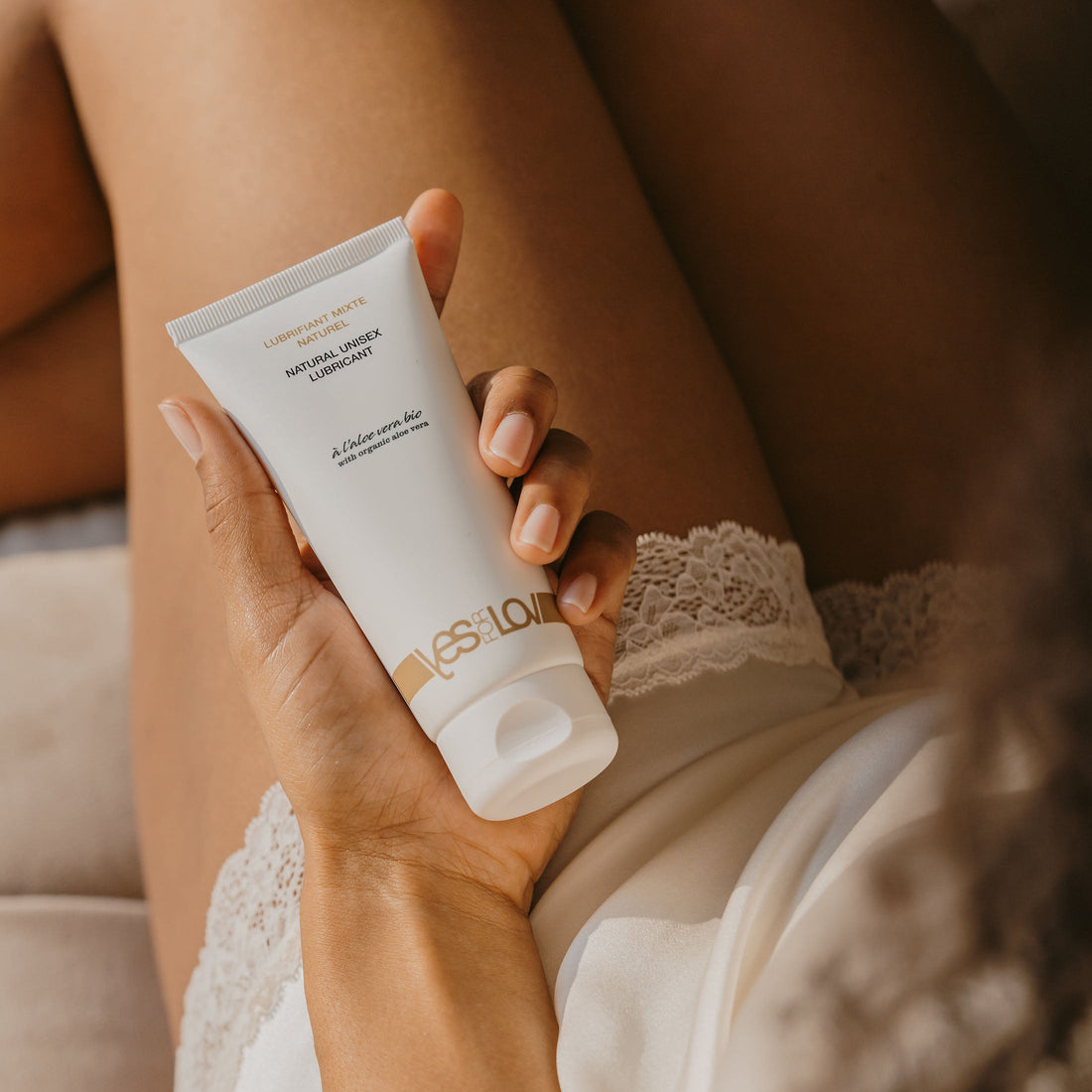In the spotlight, a non-exhaustive list of cosmetic ingredients to exclude. On a daily basis in our life as future mothers, the choice of ingredients used in the composition of our cosmetics deserves special attention. A cosmetic used with moderation , it is our leitmotif, our driver in love and an enlightened guide to follow to go after the most beautiful erotic dreams, devastating desires and wildest fantasies. No study points to any danger of using cosmetics during pregnancy and breastfeeding . In this happy Curian approach of holistic, minimalist, rural beauty and in this ever-renewed search to fully experience intimate pleasures that are totally healthy and truly safe for the health of mother and baby, the time has come to discover together the main ingredients to avoid in your lubricants and intimate care products.
Endocrine disruptors, risky substances
If we refer to the definitions of the WHO (World Health Organization), endocrine disruptors are chemical substances present in a large number of cosmetic lubricants for intimate hygiene . Daily and long-term exposure to your skin or mucous membranes could disrupt the endocrine system . There are several categories of endocrine disruptors.
Parabens are designated by means of different suffixes such as prothyl-paraben, propyl-paraben, butyl-paraben or hidden involuntarily under a code name E216 for example. All YESforLOV products are paraben-free. It is important to remember that it is the recurrent exposure of the product on the skin that creates a real danger .
Phthalates are very present in plastics and are used in the manufacture of sex toys. They are considered dangerous because they can trigger damaging damage in the sexuality of your male partner and negatively influence precocious puberty in women . These products are known to be toxic to reproduction . At YESforLOV, our intimate toys and pleasure cosmetics are made without phthalates .
Phenoxyethanol: To date, phenoxyethanol is not officially classified as an endocrine disruptor but it is strongly recommended to avoid it in your pregnancy cream as well as in baby products . In addition to being allergenic , it would present carcinogenic risks , infertility for the man and toxicity for the fetus (harmful for the blood and the liver of the baby). The ANSM recommends a dosage of 0.4% in cosmetic products intended for children under 3 years of age . The maximum concentration of phenoxyethanol could remain at 1% in adults. At YESforLOV, only 3 products contain phenoxyethanol: the apricot peach gourmet lubricant (0.88%) , the green tea pineapple gourmet lubricant (0.89%) and the intimate mist with an intoxicating scent (0.94%) which all respect all three the recommended dosage.
And the others ? We could cite triclosan , which interferes with estrogen, but also BHA, BHT, benzophenone, 4-methylbenzylidene camphor, butylphenyl methylpropional and many others. At YESforLOV, all these ingredients are banned , except for BHT present in many perfumed solutions but in really minimal proportions. Products containing BHT are: maddening massage oil (0.04%) , the Réjouissance Femme perfume and the Réjouissance Homme perfume . The professionals of our formulas are unanimous: there is no doubt that our products are irreproachable and healthy for your skin . No fear on the legal level, no complaint to consider on the legal level.
Allergens: if you can do without them, so much the better
What says "perfume" often says "allergen" because these molecules are naturally present and form the very basis of all these olfactory signatures. There are currently a large number of allergens: there are more than 82 allergenic substances present in perfume-based solutions . Allergens are known to be potentially sensitizing and can cause allergic reactions in people who are too sensitive to them. To date, the dosage is limited and varies according to the type of product and 26 of these substances are recognized as allergenic. Under multiple denominations, whether Citronellol, Coumarin, Eugenol, Farnesol or even Geraniol, allergens during pregnancy and breastfeeding is a cautious "no" for pregnant women and a categorical "NO" for breastfeeding women or non-breastfeeding but in direct contact with the baby . These so-called allergens are likely to be ingested involuntarily by the baby during breastfeeding and skin-to-skin contact with his mother. All YESforLOV products containing Perfume/Fragrance contain parabens except our intoxicating massage candle and our intimate vulva serum . As you have understood, for women who are breastfeeding, we recommend avoiding all perfumed creams, body perfumes and perfumed massage oils , which could prove to be at risk in the event of oral contact with the baby.
Mineral oils, compatible with motherhood?
At YESforLOV, we categorically refuse the use of mineral oils derived from petrochemicals and, as far as possible, the use of petroleum-derived ingredients in the formulation of our intimate cosmetics and lubricants. We favor those that nature has the goodness to offer us. On the other hand, under normal conditions of use, it is quite possible to use mineral oils such as petroleum jelly during your pregnancy. In case of breastfeeding, it is not because it is not recommended to apply it on the chest. Mineral oils are very polluting and are, like silicones, non-biodegradable . They really have no interest in traditional cosmetics. In our modern world which mixes eroticism, romanticism, our sexuality and our sensuality are boundless: it is true that petroleum jelly has great moisturizing and lubricating power. It avoids drying out, softens the intimate mucous membranes and can be used as an intimate lubricant for sex in the hydration of the intimate mucous membranes in the event of vaginal dryness or anal intercourse. On the other hand, it is important not to use petroleum jelly on a condom because the latter is a fatty substance which in this case becomes too porous to remain impermeable to microbes and fulfill its role as a protective barrier against unwelcome sperm. .
Essential oils during maternity: we talk about it because it relieves
Even if essential oils are intended to be natural and extremely effective in countering many inconveniences, essential oils can prove to be dangerous during certain periods of life, and in particular during pregnancy. Admittedly, the risk is purely theoretical and this is an excess of precaution, however the majority of neurotoxic essential oils are strictly prohibited during the first three months of pregnancy . The reason is very simple: they potentially risk passing into the body through the placenta and therefore represent a certain danger for the developing fetus. The same caution should be observed if you have decided to breastfeed your baby because essential oils pass into breast milk . All essential oils that contain ketones are prohibited for pregnant women . In addition, essential oils also have an influence on the hormonal system (so-called hormone-like). As you have understood, YESforLOV says absolutely NO to essential oils for the first three months. Beyond the fourth month of pregnancy, it is much more flexible and you can use a limited number of these essential oils such as chamomile , ginger , lavender in small quantities and for topical use only. Some of them will remain totally prohibited throughout pregnancy: peppermint or sage, which are however found in our orgasmic gels . In the end, a good thirty essential oils are authorized to accompany the future mother in her maternity.


